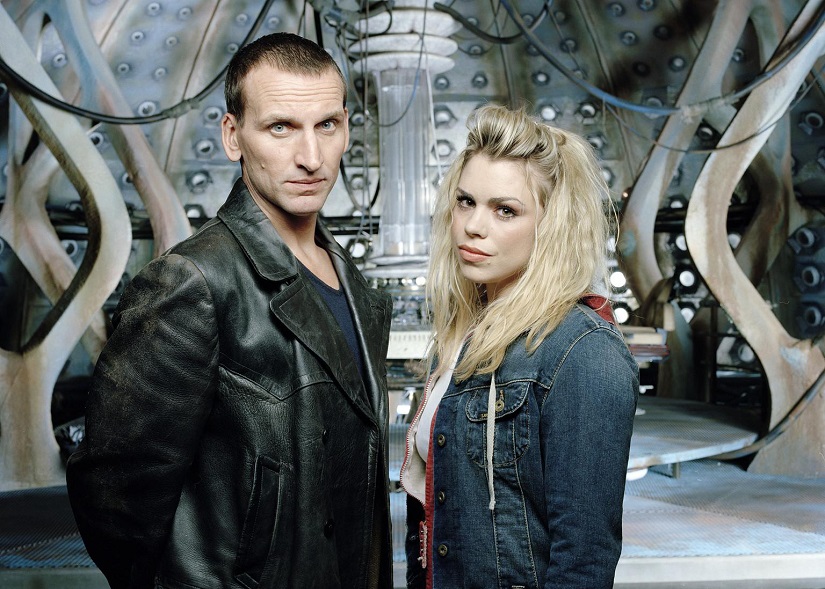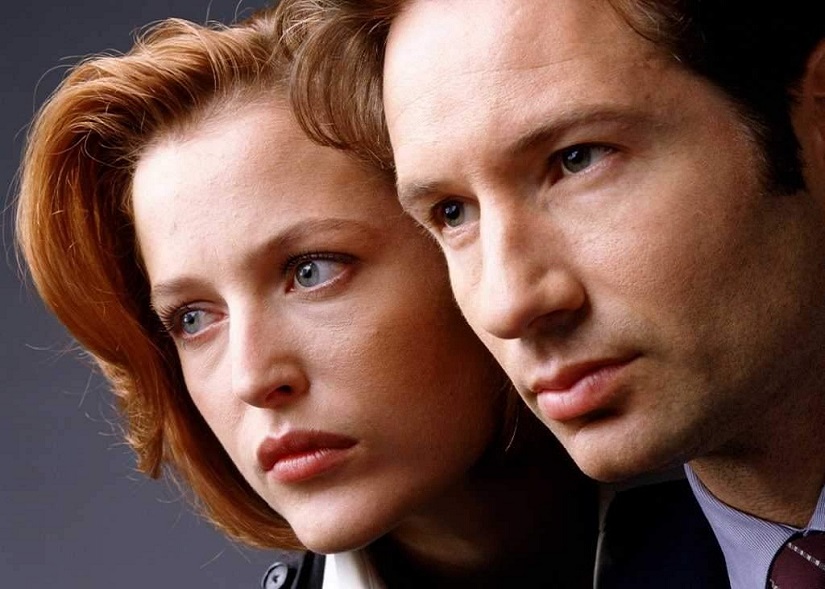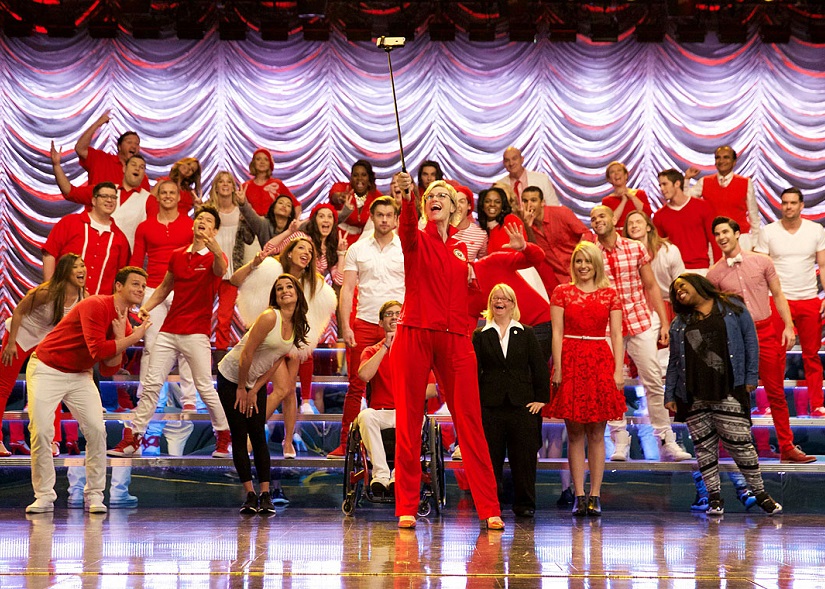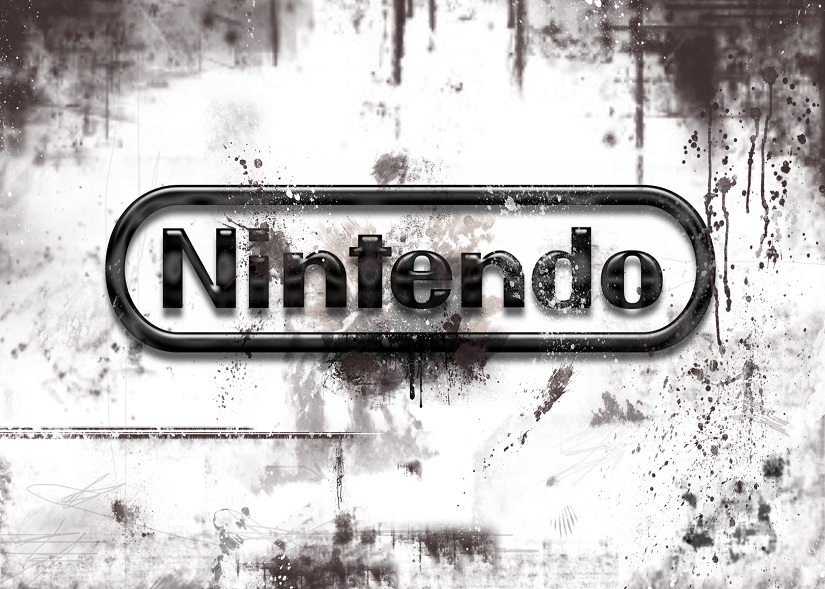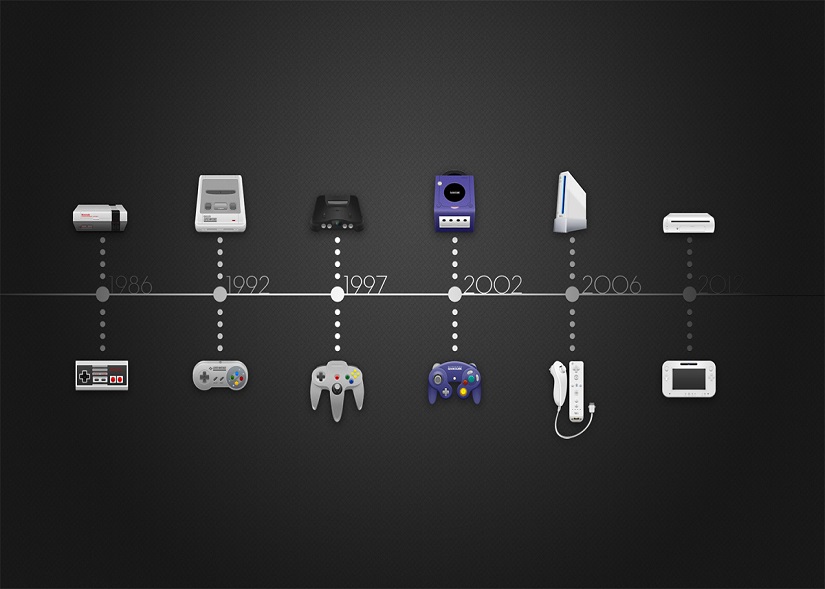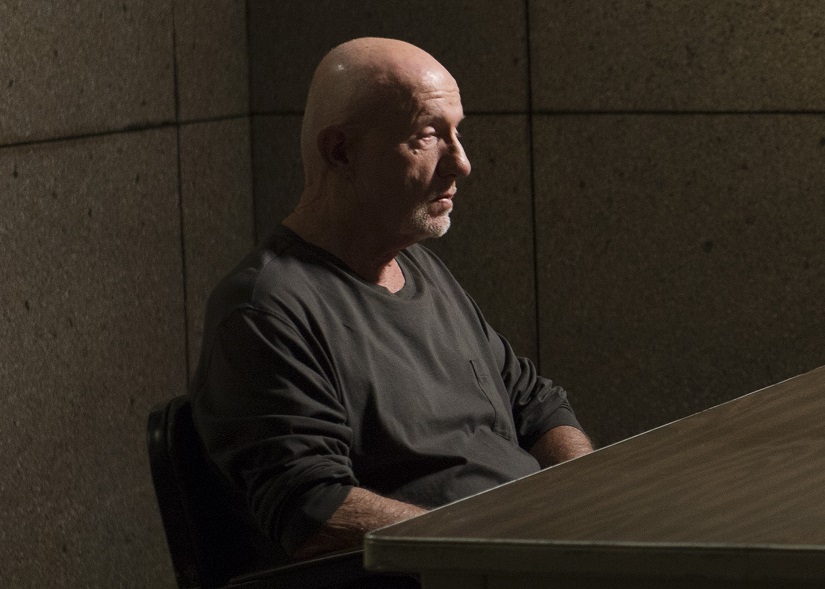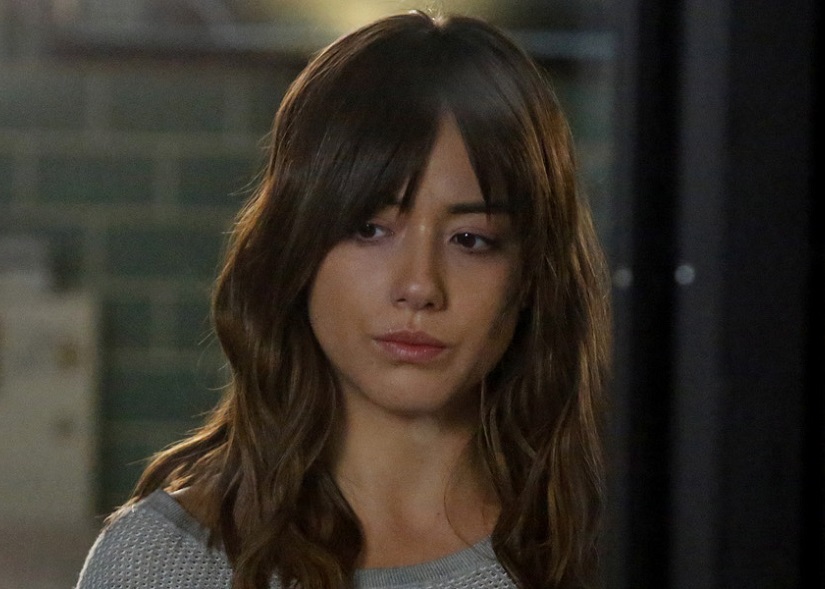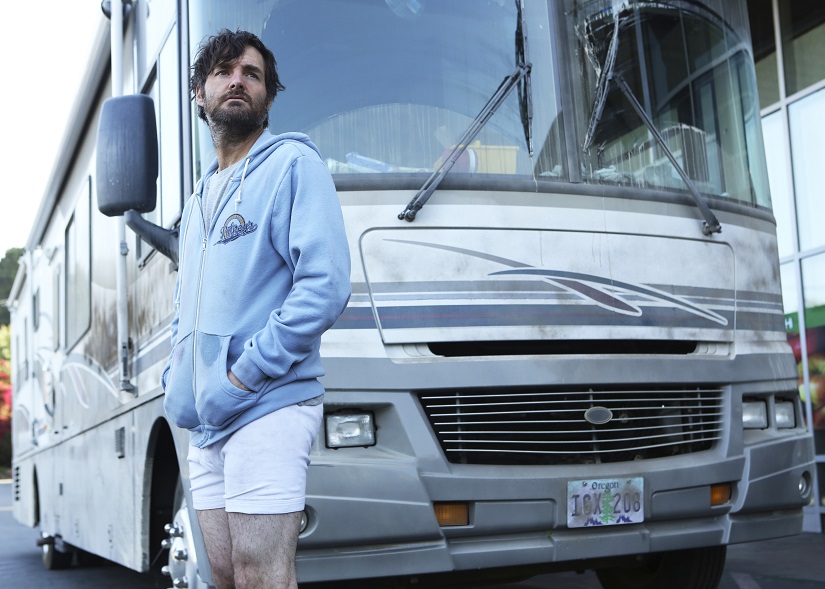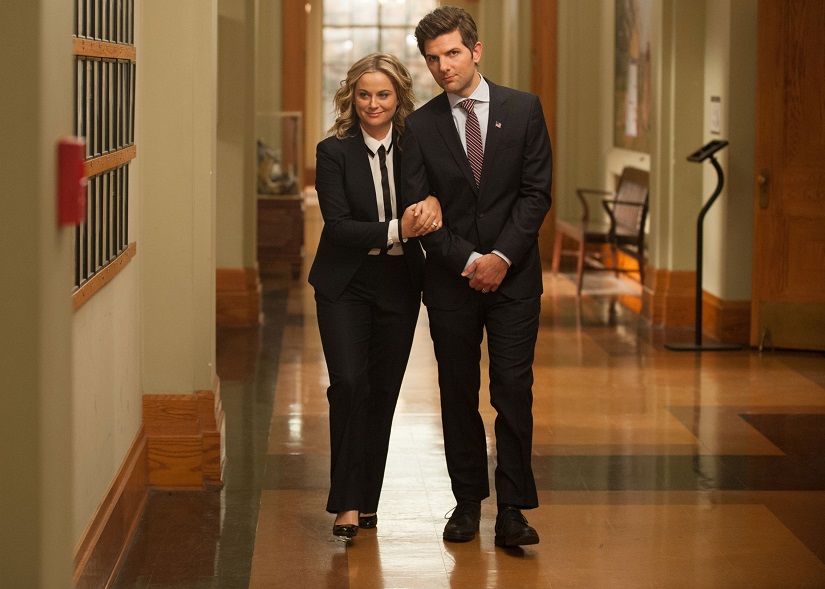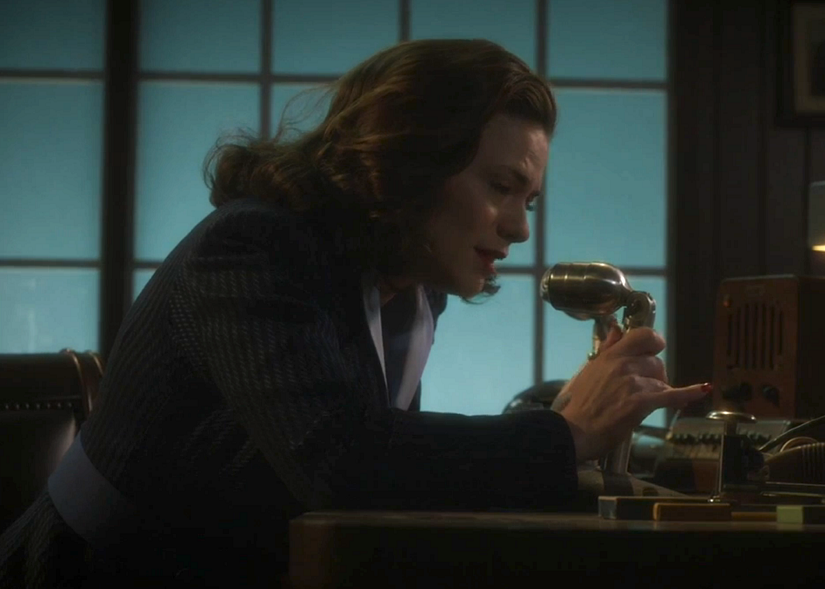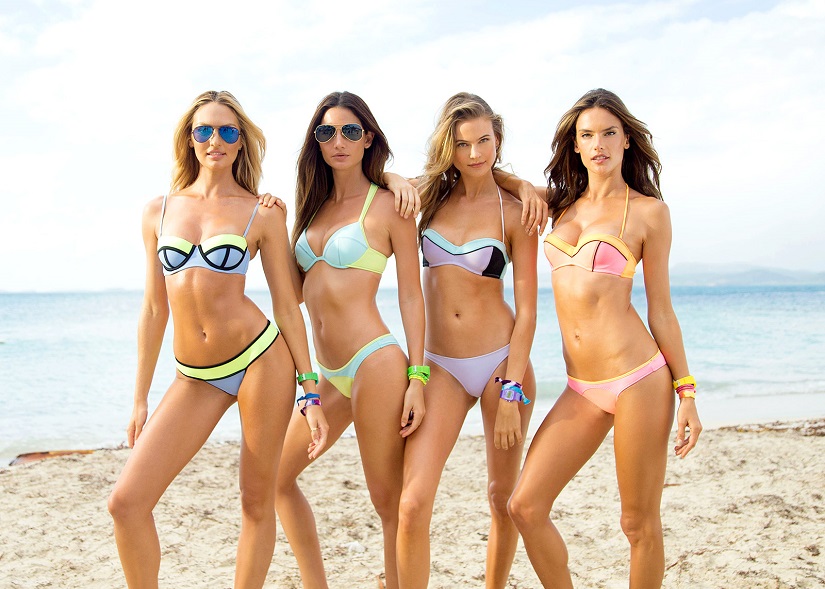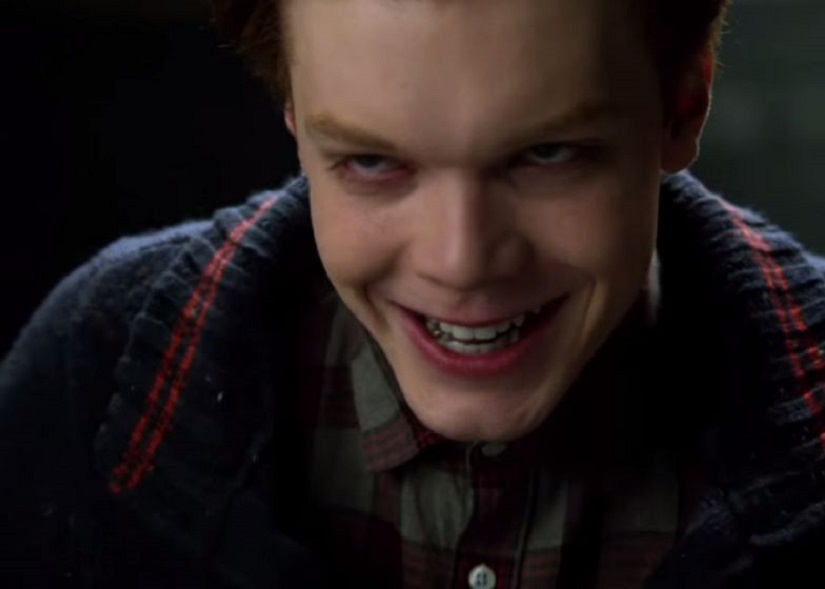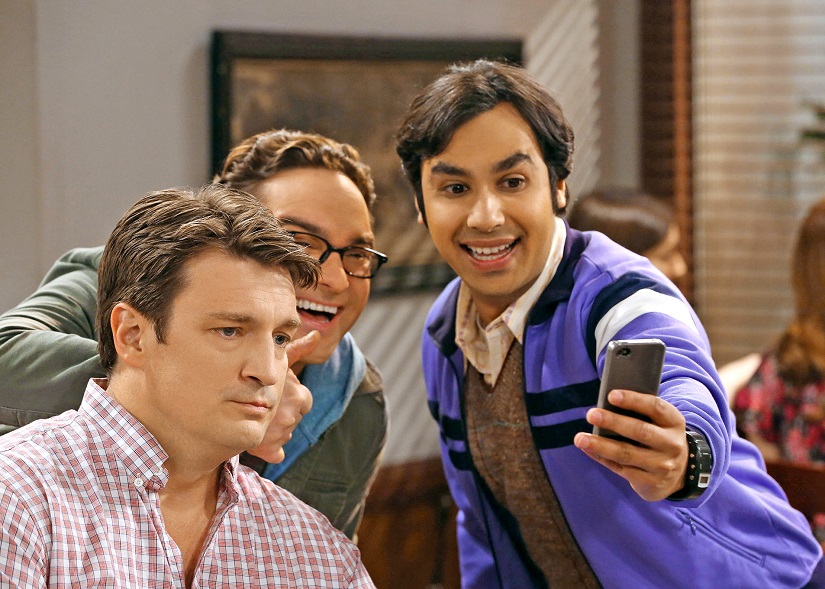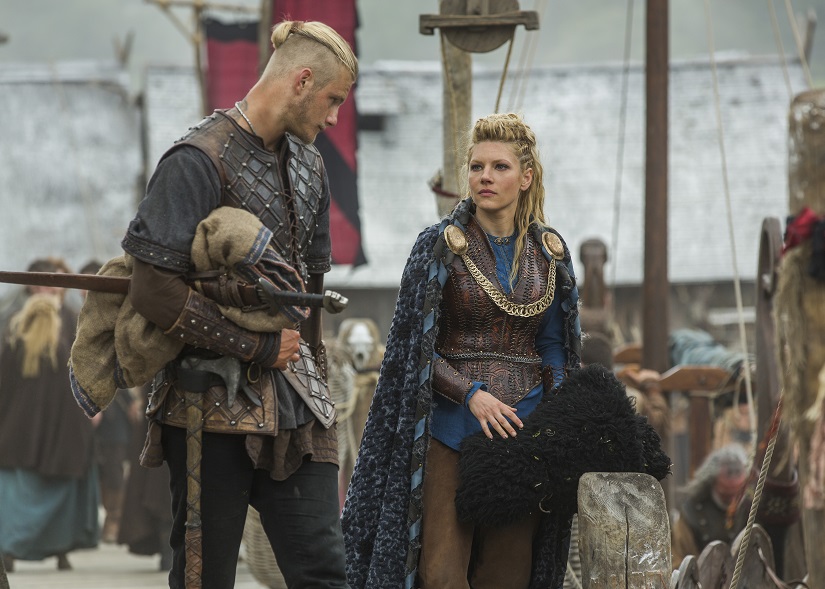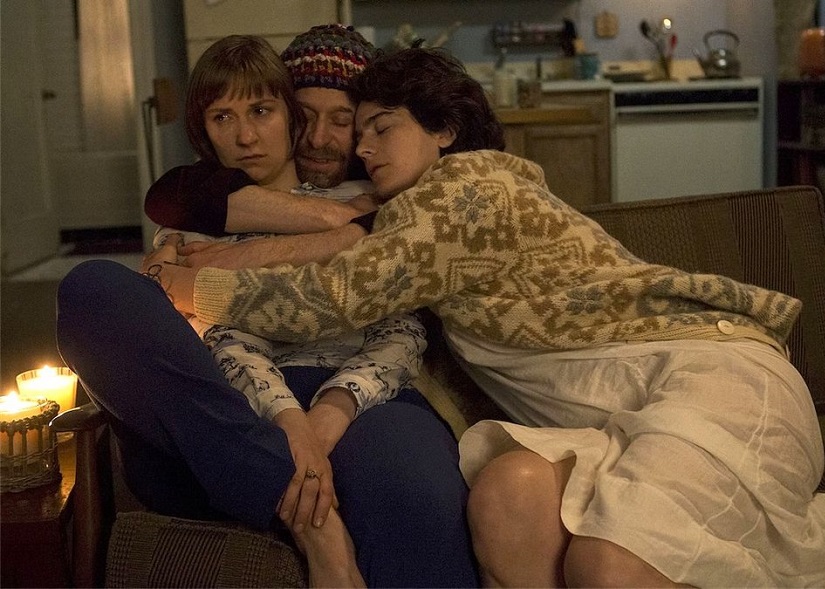Ten Years Of Modern Doctor Who: Revisiting 'Rose'
Doctor Who celebrated its fiftieth anniversary two years ago, and celebrates its tenth anniversary today. What else would you expect from a series which has never placed much stock in keeping its timelines in order? Just ask UNIT in the late '70s. Or should that be mid-70s? Fantastic. Anyhow, where the 50th anniversary marked the birthday of 'The Unearthly Child', the series' very first episode back in 1963, today's tenth anniversary marks a decade since Russell T. Davies revived the show following sixteen years off-air, barring one ill-fated television movie, and set the stage for what would grow from a cultish British sci-fi curiosity into a genuine transatlantic phenomenon.
Re-watching 'Rose', the first episode of the revived series (or New Who, as it's colloquially known), is fascinating not only in light of how drastically the series has evolved over time, but also how fully-formed the most important aspects of the show were right out of the gate. The most immediately striking difference is between the creative focus of the man in charge then, Russell T. Davies, and the man in charge now, Steven Moffat. The very first shot, swooping from an orbital shot of earth down to Rose Tyler's buzzing alarm clock, establishes perhaps the single definining theme of Davies' tenure: contrasting the grand majesty of space and time with the humble, messy lives of your workaday human. Where Moffat's characters function as cogs in their creator's cosmic clock, Davies rejoices in the silly essentialness of mundane existence. Rose may not find much fulfilment in her shopgirl routine, but in Davies' eyes, there's something magical in being that one amongst millions, rummaging around for a place in humanity's buzzing, living hive.
Fox Reopens The X-Files For Six Episode Miniseries
Fox has confirmed reports that landmark '90s horror series The X-Files will indeed be returning to TV for a six-episode miniseries that will enter production later this year. No word on a premiere date, but series creator Chris Carter will be back on writing duties, while original stars David Duchovny and Gillian Anderson will also be returning.
Anyone who enjoyed the show during its heyday will find it difficult not to be at least a tiny bit excited about this, even if the shambolic 2008 movie sequel poisoned the well a little. The original run of The X-Files coincided perfectly with the advent of the internet and its insanely convoluted mythology and will-they-won't-they relationship between the two leads made perfect fodder for early fansites and chatrooms in the days of shrieking modems and parents shouting angrily from downstairs about not being able to use the landline.
Unlike the thematically timeless Twin Peaks, another classic series set for return if David Lynch can sort out a contractual disagreement with Showtime, The X-Files' focus on alien invasions and government conspiracies were very much a product of their pre-millennial time. These days, most people couldn't care less about UFOs, and while government secrets are very much at the forefront of many people's minds, the kind of evils being unearthed feel rather too nasty and real to make the notion of paranormal conspiracies feel anything other than a bit frivolous.
It's a fair assumption the show will focus telling a single story across its six hours, which could be a good or bad thing depending on what you enjoyed about the original, whose monster-of-the-week episodes produced some genuine masterpieces of televisual horror. It'll certainly be great to have Duchovny and Anderson back, while I'd also wager Mitch Pileggi is nailed-on to return as the agents' grouchy but loveable boss, Walter Skinner. Personally, I'd like to see Robert Patrick's John Doggett and Annabeth Gish's Monica Reyes appearing in some capacity as well, though accept I'm probably the only one.
It'll be interesting to see whether The X-Files or Twin Peaks is more successful at recapturing the old magic, though my money is very much on Lynch rather than Carter. Carter was never a particularly nuanced writer at the best of times and many of the series' finest episodes came from others, like Darin and Glenn Morgan or Vince Gilligan, who's probably too busy with Better Call Saul to make a glorious return. Still, at least this means the series will get a third chance at a decent ending, following the disastrous clip show recap that was the original two-part finale, 'The Truth', or the aforementioned 2008 movie.
Trust no-one, but fingers crossed regardless.
[This Week In TV] Glee, Community, iZombie
This Week in TV is a weekly feature reviewing the best, worst and most interesting episodes of television from the past seven days. The plan is to cover a wide variety of shows, but not always the same ones each week, so let us know in the comments which ones you’d particularly like to read about. This week sees Glee give its farewell performance, Community make another miraculous resurrection, and iZombie premiere on the CW.
How Mobile Gaming Could Save Nintendo's Next Console
Nintendo confirmed at a press conference this week that their next console, codenamed the 'NX', was on the way, with more details set to be revealed in 2016. That the company is working on the Wii U's successor is hardly a surprise, having been hinted at much several times over, though the fact this news attracted so much attention despite only being revealed as a way of quashing any speculation of Nintendo quitting the dedicated hardware market - having been announced at the same time as the company's plan to licence its characters out for mobile game development - shows how important a place the company occupies in gaming culture even with the abject failure of their most recent home console.
The Wii U has yet to cross the 10 million global sales mark, having been available to buy since Christmas 2012. By contrast, the company's previous low watermark for home console sales, the GameCube, sold 22 million units between 2001 and its discontinuation in 2007, while the Xbox One and Playstation 4 have already outsold the U despite launching a year later. Sales of the 3DS have been more stable, shifting a creditable 50m units as of December last year. This pales in comparison to its predecessor, the DS, however, which sold just over 150m across its lifespan and is the top-selling handheld of all time.
The news of Nintendo finally, some would say inevitably, caving into the pressure to move into the mobile arena sent the price of their stock soaring by 29%, yet this represents something of a dilemma for its traditional audience. If the company's mobile ventures prove successful, as seems likely to be the case - their partners, DeNA, are hugely experienced and successful in the mobile gaming field, while Nintendo's catalogue of mascots have the kind of global recognition and appreciation which should guarantee a high level of trust and curiosity out of the gate -and they continue to struggle to assert themselves in a dedicate games hardware market where Sony and Microsoft are seen as more contemporary and exciting options by most so-called 'core' gamers, what reason is there for Nintendo to continue resisting the urge to dedicate most or all of its resources to mobile game development?
The fact is that, regardless of its recent difficulties, the gaming hardware market would be a very different and less exciting place without Nintendo. After the video game crash in 1983, the company almost single-handedly revived the market with the Nintendo Entertainment System with a business model which, through licencing, guaranteed customers a certain level of build quality in their games. Its successor, the SNES, solidified Nintendo's place as the dominant force in the market, despite growing competition from SEGA. Their next console, the N64, would lose considerable ground to Sony's newcomer, the PlayStation, yet despite sticking with outdated cartridge technology, the controller's use of an analogue stick revolutionised the way games controlled in a three-dimensional space. The Gamecube saw Nintendo's stock fall yet further, with Microsoft entering the market with the original XBox, but the system's Wavebird controller revision was the first to offer a wireless connection to its console.
Little was expected of Nintendo's follow-up system, yet the Wii's unusual name and innovative yet simple motion controller caught the public imagination and quickly became a bonefide phenomenon. Unfortunately, the console's unreliable motion-sensing technology, combined with outdated hardware (offering only standard definition output against the XBox 360 and PS3's HD) and a combination of third parties flooding the market with low-quality games to get in on the rush while Nintendo struggling to fill gaps in their release schedule, meant the brand quickly soured for much of the company's long-term fanbase.
This led to the Wii U, a console mired in confusion and compromise from its unveiling, at once offering more traditional controls to appease disgruntled fans while continuing to confusingly utilise the Wii name, require a bafflingly large number of controller types (gamepad, wii remode, classic controller, etc) and centre around a touchscreen which was often inconvenient to use and has offered little in gameplay terms beyond an always-on map or inventory screen, plus the limited appeal of being able to continue to play even while not using the television.
The PS4's outstanding sales, undeterred even by a widely acknowledged dearth of worthwhile games in its catalogue, shows how important strong marketing is to a console's success. Despite its past innovations and the consistently high quality of its games, Nintendo is perceived by much of the gaming market as staid, childish and outdated, heavily reliant on gimmicks where Sony and Microsoft have pushed state-of-the-art (for consoles, anyway) technology and online infrastructure. They are seen to have little to offer anyone without an existing appreciation for a small number of popular franchises, a number increasingly limited to spin-offs of the Mario and Zelda games. Major third-party series such as Call Of Duty, FIFA and Assassin's Creed have all floundered on the Wii U, with recent iterations missing from the console altogether. The Grand Theft Auto series, meanwhile, has never graced a Nintendo home console.
If Nintendo are to succeed, it would seem they need to stumble upon another zeitgeist-defining innovation in the same vein as the Wii's motion controls while simultaneously offering a level of technological power at least in the same ballpark as its competitors. That need to find the next big innovation is itself somewhat problematic, though, not least because of the unlikelihood of even a company as inventive as Nintendo making the proverbial lightning strike twice, but also because the company's current association with gimmickery means offering anything but a standard dual-analogue controller is likely to be greeted with immediate suspicion.
This Week In TV: Better Call Saul, The 100, Bates Motel
This Week in TV is a weekly feature reviewing the best, worst and most interesting episodes of television from the past seven days. The plan is to cover a wide variety of shows, but not always the same ones each week, so let us know in the comments which ones you’d particularly like to read about. This week sees Better Call Saul reveal the tragic history of one of its most beloved characters, the second season of The 100 come to a stunningly bleak conclusion, and Norman Bates being promoted to manager of the Bates Motel.
[This Week In TV] Unbreakable Kimmy Schmidt; Agents Of SHIELD and More
This Week in TV is a weekly feature reviewing the best, worst and most interesting episodes of television from the past seven days. The plan is to cover a wide variety of shows, but not always the same ones each week, so let us know in the comments which ones you’d particularly like to read about. This week sees the debut of Tina Fey's new comedy, Unbreakable Kimmy Schmidt; the return of Marvel's Agents Of S.H.I.E.L.D.; and Will Forte roaming a deserted Los Angeles as The Last Man Alive.
Unbreakable Kimmy Schmidt - First season
Having been abandoned by NBC, the complete first season of Unbreakable Kimmy Schmidt premiered on Netflix yesterday, hence this review taking a wider look than just the first episode. Kimmy Schmidt is the story of a young woman rescued from an apocalypse cult which saw her locked along with three friends in an underground bunker for fifteen years, before being rescued and let loose to try and make a life for herself in modern day New York. Those who count themselves among 30 Rock's devotees will immediately find themselves in familiar territory here, from Jeff Richardson's strikingly similar score to a humour style leaning heavily on cutaway visual gags and rapidfire wordplay.
In Ellie Kemper, the show finds a perfect lead for a character who, in lesser hands, could come off as irritatingly dumb and over-affected in her cutesiness. Instead, Kemper finds a perfect middle ground that layers the manic chirpiness and enthusiasm with an underlying sense of damage and emotional depth, making Kimmy a fully rounded character behind the quirks. Titus Burgess puts similar pain behind his character, also named Titus, turning a potentially tiresome gay stereotype into a delightfully delicate and ridiculous foil for his new roommate. Jane Krakowski once again plays Jenna Marone, albeit under the new name of Jacqueline Vorhees and with an admirably ludicrous backstory and a grouchy daughter, Xanthippe, who inspires some memorably spiky comebacks from Kimmy.
Despite its immediately winning cast, Kimmy Schmidt struggles to achieve more than a handful of isolated laughs per episode because it never really grounds its comedy in anything real or specific in the way 30 Rock did with television production. The eponymous Kimmy should work as an oddball in a tough, modern city, but instead she's just one among many exaggerated cartoons. Attempts at social commentary feel clumsy at best and like cynical box-ticking at worst: ideas about victimhood in the pilot (and a more subversive spin on the same topic in episode 5) would provide potent and topical subtext, except the writers insist on punching you in the face with it: "Thank you, victims!" an assistant shouts as he bundles the four women out the back door of a television studio.
Similarly, a gag about Kimmy being subjected to a crass catcall from a builder makes its point perfectly well with a neat and funny punchline ("I wish I were your yellow hat!"), only to have the wit and pleasure sucked out of it by the builder suffering a crisis of conscience and reaching the lazy and reductive conclusion that he only harrasses women because he's secretly gay. It's also a little hypocritical for a show puporting to oppose inequalities to base one episode around women coming off worse in divorce settlements, which, no matter how many mitigating circumstances are shoehorned in, still comes off as unironically placing those who benefit from an unequal system in the role of victims of that same system.
As you'd expect from a Tina Fey comedy, Kimmy Schmidt does pull off some terrific gags from time to time - Titus discovering he gets more respect dressed as a werewolf lands an absolutely hysterical conclusion - and is not short of imminently quotable one-liners (#hashbrown), but the humour leans too heavily either on ground already well trodden by 30 Rock - the redneck humour wasn't funny then, still isn't now - or on Kimmy's fish-out-of-water ignorance, which even when delivered by an actress as effortlessly charming as Kemper, can feel exhausted after a while. The show takes a few episodes to get going, peaks in the middle before dropping severely in quality for its final three. As is the Netflix way, it's light and dumb enough to binge through in a few sittings, but needs to find some substance and specificity in its second season if it's to match the greatness of its illustrious forebear.
Agents Of S.H.I.E.L.D. - "Aftershocks"
Despite being critically panned for much of its first season, Agents Of SHIELD - and no, I'm not going to keep typing those bloody full stops - was on fantastic form before going into a post-Christmas break, during which it was replaced by the very watchable Agent Carter. It was starting to put together some strong action sequences and a compelling central mystery linking it to a vital but hitherto unexplored area of the Marvel screen universe. True, its characters largely remained as generic and personality-deficient as ever, but Adrianne Palicki proved a strong and charismatic addition to an expanding cast and at least they were doing interesting things, even without being particularly interesting themselves.
'Aftershocks' suffers from coming off such a prolonged break, and the clue to its problems is in the title. Despite a pre-episode recap, the events of Skye and Raina's incursion and transformation in the subterranean Kree city feels too long ago for the relatively slow and pensive aftermath to be as compelling now as it would've been three months ago. Skye spends almost the entire episode locked in quarantine, having one-on-one conversations with her teammates through a glass wall, while Raina struggles to come to terms with having become what she sees as a monster. There's plenty of dramatic meat to chew on, but it's too late after the event and too downbeat to function as an inviting re-introduction to the series. The absence of a strong central character or single dominant personality is keenly felt because the show's strongest elements, its action and plotting, are mostly kept on the down-low whilst Coulson and his team mourn a fallen comerade and bounce the blame around.
Raina's story is more interesting than Skye's, in no small part because we can immediately see the effect that the Terrigenesis has wrought on her. Her body is covered with thorns and her facial features have mostly melted away, leaving a character previously defined by her beauty and control in a position where she's stripped of both those assets. Dichen Lachman makes a welcome reappearance, if anyone remembers her popping up momentarily in the pre-Christmas episodes, that is, setting the stage for the blind, teleporting Inhuman who rescues Raina from capture following a suicide attempt. Introducing the Inhumans through Agents Of SHIELD is a canny move which makes the series' events feel immediately essential to the Marvel screen universe in a way the first season failed to, but despite promising great things to come, 'Aftershocks' on its own terms was too busy reminding us of events past than making interesting moves in the here and now.
The Last Man On Earth - "Alive In Tucson"/"The Elephant In The Room"
'Alive In Tucson' is one of the boldest, most ambitious and bleakly funny episodes of television to air this season. It focuses entirely on one man, Will Forte's slobbish Frank Miller, as he attempts to stave off boredom and then depression as seemingly the only survivor of an unspecificed virus which tore through the human race at apparently brutal speed. Though it may come up later, the writers make no effort to explain why the streets aren't littered with corpses or whether animal and insect life was similarly afflicted: judging by the complete absence of insect swarms when Phil starts using a pool as a toilet, it seems probable.
In any case, it's clear enough that removing such obstacles allows the show to focus entirely on the character drama without getting unnecessarily unpleasant, which is a perfectly acceptable trade-off. The lack of details works in its favour, allowing the audience to fill in the gaps with their own explanations rather than having to ignore any logical gaps that might exist in an official one provided by the writers. Plus, Phil doesn't really seem the sort to bother too much with the 'why' or 'how', so it makes sense that he'd be more preoccupied with his own present interests rather than seeking out answers. The gradual degredation of his mental state gives the character real sympathy even when played strongly for laughs. He may be materialistic and slovenly, but also demonstrates admirable creativity in how he amuses himself - explosive car bowling! - and puts real effort put into seeking out any other trace of human connection he can, even if it initially involves conceding a point to the writers of Cast Away about the friendship appeal of volleyballs.
It's hard to imagine how the show could've sustained itself with a single character for an entire season, but it's nevertheless disappointing when another survivor, played by Kristen Schaal, shows up at the end of the very first episode. It's made worse by the fact Schaal's character, Carol, is the worst kind of stereotypical female nag and buzzkill. There's real potential in the idea of the last two humans alive having to team up despite hating each other - see Lister and Rimmer on Red Dwarf for further details - but the imbalance is far too severe between Phil's likeability, in spite of his many flaws, and Carol being yet another loathsome termagant with little to no redeeming qualities. Her attempts to bring him back within the parameters of civilised living may be beneficial in the long run, but her non-stop nagging (and marriage obsession) lands her right in Katherine Heigl territory and completely tanks the second episode. Hopefully the characters will be broken out of that Judd Apatow mould (slobbishly charming man worn down by a scolding woman) as soon as possible, because "The Elephant in the Room" almost immediately squanders the goodwill built up by the outstanding 'Alive In Tucson' for the series going forward.
[This Week In TV] Parks & Recreation, Agent Carter, Victoria's Secret Swim Special
This Week in TV is a weekly feature reviewing the best, worst and most interesting episodes of television from the past seven days. The plan is to cover a wide variety of shows, but not always the same ones each week, so let us know in the comments which ones you’d particularly like to read about. This week sees the series finale of Parks & Recreation, Agent Carter reach the end of its eight-episode run, and Victoria's Secret draping semi-naked women across our televisions just because it can.
Parks & Recreation - "One Last Ride"
The outpouring of grief in certain corners of the internet over Parks & Rec's final farewell would seem disproportionate on the surface for a show which never did especially well in the ratings and whose output varied in quality over its final few seasons. It wouldn't be the first show to be lauded by a small but passionate internet fanbase - one need only look to Chuck or Community for shows whose very survival depended on it - but Parks seems to have struck a more personal and emotional chord with its fanbase than almost any other show to have gone before. The most passionate tributes to 30 Rock, for instance, came from women inspired by Tina Fey giving her sex a real voice in the television comedy landscape and, through her magnificent alter-ego, Liz Lemon, permission to be every bit as ridiculous as the men around her. Parks & Rec wasn't shy about its feminist leanings, but its audience seems to reach far beyond those narrow parameters: whether men or women, fans or critics, feminist or apolitical, even the Indiana tourist board, it seemed that no matter where you looked, love for the show was all around.
While I can hardly pretend to speak for such a wide variety of people, my personal feeling is that the intense passion so many felt for the show most likely grew out of one of its simplest, but most gently powerful characteristics: it was a show which, at its core, was kind. Leslie Knope may have overcome no shortage of cartoon villains during her time in Pawnee - Tammy II and Councilman Jamm being among the most memorable - but her greatest triumphs were rooted in empathy and understanding. Fiercely competitive and ambitious though Leslie was, her willingness to listen and make the right choices stood her apart at a time when the TV landscape was dominated by comedy born out of cynicism and drama portraying tortured anti-heroes navigating bleak ethical landscapes.
Parks & Rec was a beacon of light, embodied first and foremost by Leslie but enhanced by the affectionate and well-meaning doofuses she called her friends and colleagues, each representing their own corner of American life. In Ron f**kin' Swanson, she found her closest friend in a man seemingly her polar opposite: a gruff, anti-social conservative whose keenest interest in big government was trying to sabotage it at every opportunity, all while cultivating TV's greatest moustache. From Ann, April and Andy came the voices of youth trying to find their place in the world (or in Chris Pratt's place, the galaxy); Tom and Donna were livewire portrayals of people from underrepresented races making the American Dream their own; Ben was a positive voice for nerddom, Chris for the high-achievers. Pawnee was a place where everyone was welcome. Well, except Mark Brendanawicz.
As for the finale itself? Well, as has been the trend over the past few seasons, it got the sentiment right even if the pacing and humour were sometimes a little lacking. The structure, Six Feet Under inflected, meant the story moved in fits and starts and the eponymous 'last ride' never felt like much of a struggle or an achievement for any of the characters. However, as a farewell to this wonderful cast of characters, it did right by all of them, perhaps none moreso than in leaving Ron canoeing serenely across a vast lake, having found total contentment. April got one last piece of wonderful Leslie advice, Ann and Chris made a brief but charming return, and there was one last, magnificent dig at a public library. In short, it offered an hour-long encapsulation of everything which made Parks special to so many, and no-one could ask for much more than that.
Agent Carter - "Valediction"
Another feminist show to take its bow this week was Marvel's Agent Carter, which, like Parks, has enjoyed some critical acclaim even while never quite becoming as much of a ratings hit as expected. The show took a while to find its feet, leaning too heavily at first on some eye-rollingly unsubtle representations of post-war discrimination, and plotting which worked passably well for individual episodes but struggled to establish a compelling or coherent bigger picture.
What kept it on track throughout was the performance of Hayley Atwell, at times single-handedly dragging the show forward through sheer force of charisma. While Peggy's characterisation on the page was never really extended beyond a hyper-competent woman fighting for a place in a world of powerful but ignorant men, Atwell filled in the details with effortless grace, bringing humour and suggesting a sympathetic heart beating beneath her charaacter's closed exterior. While the show's one-note feminism offered more crowd-pleasing than nuance, Atwell's transformation of Peggy into someone more fully developed than your stereotypical 'strong woman' was instrumental in drawing the audience onto her side and making each of her triumphs truly gratifying.
A shame, then, that 'Valediction' took much of the finale of Peggy's own show out of her hands and repositioned it to revolve around - yes - a powerful but ignorant man. Howard Stark may be one of the most important supporting characters in Marvel's canon, but making him the centrepiece of Agent Carter's serialised plotline detracted from the series' central feminist message and at the final hurdle, diminished its core strength - Atwell's Carter. It didn't help that Stark is, like most of the men in the show, a rather one-dimension buffoon. Dominic Cooper played the role as written, but the performance was still a grating one, with everything from the syrupy accent to the smug grin making the character more than a little unbearable across a full episode.
Still, while nowhere near as exciting as the penultimate episode, 'Snafu', 'Valediction' was a solidly enjoyable hour despite its self-inflicted obstacles. It improved markedly once Peggy started to take charge of proceedings: while Dottie needed more time to fully register as a villain, her fight with Peggy was decent value and should the series return, she will be a very welcome part of it. Peggy talking Howard down from attacking New York also gave a satisfying pay-off to her mouring of Steve Rogers, with Atwell, of course, nailing every emotional beat. Agent Carter may still only be a good show when it has all the ingredients to be a sensational one, but in Atwell it has a genuine star whom it would be very sad not to see return for a second run.
Victoria's Secret Swim Special
It's a hard life being a television critic. Sometimes you just have to sit down, steel yourself, and watch a full hour of the world's hottest models prance about in miniscule bikinis on gorgeous tropical beaches for review, because, well, it's your damn job. No, no, don't feel the need to send letters of thanks. These are the sacrifices we make; extensive rewinding, pausing and all.
So, the Swim Special. In a gripping narrative, the Angels turn up in Puerto Rico to shoot photos for the Victoria Secret swimsuit catalogue, with the dramatic stakes terrifyingly high as each model competes to claim the much sought-after cover. Lily Aldridge, owner of a body so celestial you'd think planets would revolve around it, is up first, proving herself a master of understatement by describing the shoot as 'epic' and 'legendary'. Truly, hers is a task Heracles would wilt to face, having to overcome crippling vertigo by climbing a small ladder onto a moderately sized boulder. Brave Lily is for this applauded by the crew with the joy traditionally reserved for a returning war hero. Meanwhile, the eternally chipper Behati Prinsloo is busy derping about in town, pretending to take photographs before meeting up with her Puerto Rican chum, Joan Smalls, to try out some local dancing. Compelling stuff indeed, but not exactly showing the kind of dedication required to bag a prestigious *cough* cover. Having recovered from her traumatic experience on the boulder, Lily Aldridge heads off to do an underwater shoot with Alessandra Ambrosio. Alessandra has done these before, but Lily hasn't and, once again, is utterly terrified. However, in a stunning twist, bad weather forces them to head back to land, where Lily gets to roll around in the surf instead. Triumphant music emphasizes the scale of her success.
Next, we check in with Candice Swanepoel, who has dominated the swimsuit catalogue cover for the past few years. Photographer Russell James, barely able to hide his smugness at having a much better job than you, describes her shoot as 'illegal'. No-one's entirely sure what this means, but fortunately there are no arrests. However, just as everyone's settling in, villains Maroon 5 turn up and their devastating show of corporate rock mediocrity kills all known boners dead. The Angels recover from this disaster with meditation and yoga, achieving zen enlightenment courtesy of VS' line in overpriced exercise gear. Adriana Lima and Joan Smalls then muck about with a pony for a bit, before the girls head into town for a night of celebration with Colombian crooner, Juanes. Unlike Maroon 5, he actually has an audience, who dance the night away amid domino-playing natives. With everyone else presumably ferociously hung over, Jasmine Tookes turns up briefly as a distraction before promptly disappearing again. Having recovered from their night of drink, drugs and dominos, the final four - Prinsloo, Aldridge, Swanepoel and Ambrosio, decked out in Top Gun sunglasses - engage in a decisive volleyball competition. TO THE DEATH. Or maybe not. Anyway, there's disappointingly little match action and most of the drama is relayed through the camera focusing at length on the scoreboard, which may set a new standard for streamlined sports coverage.
Underdogs Behati and Lily beat the odds to emerge victorious, followed by much celebration and spooning. Or maybe I dreamt that last part. Anyway, Lily's victory speech to the other girls couldn't be any more patronising if she tried ("You're great sports and you look beautiful.") and she chest-bumps Behati, which almost made me go blind. Alessandra says she'll look back on all this one day as 'an incredible time in her life', which seems a bit pessimistic. Little does she know but there's to be no happy ending: Maroon 5 return and the Angels dance with contractually obligated enthusiasm to their bland warblings. Amusingly, no-one else bothered to show up. Adam Levine gets a kiss from his wife, Behati, and it's all very disheartening. Overall, a downbeat ending sours an otherwise nerve-janglingly dramatic television event that doesn't quite come together as whole, but hardly matters since most of its target audience will probably have watched it in periods of no more than four minutes at a time anyway. Also, I think Lily Aldridge owns my soul now.
[This Week In TV] Gotham, Big Bang Theory, Vikings, Girls
This Week in TV is a weekly feature reviewing the best, worst and most interesting episodes of television from the past seven days. The plan is to cover a wide variety of shows, but not always the same ones each week, so let us know in the comments which ones you’d particularly like to read about. This week sees the Clown Prince Of Crime (possibly) make his entrance in Gotham, a death in the family in The Big Bang Theory, Vikings set sail for England and Hannah returning home to find her life in ruins once again in Girls.
Gotham - 'The Blind Fortune Teller'. Gotham feels on the verge of going full circle into becoming a parody of itself. Afflicted from the beginning with a case of severe tonal discord, the show seems to have doubled down on the lunacy with every passing week while intermittently still trying to engage viewers with what it tries to pass off as serious drama. The cases of the week are often grizzly affairs, yet interspersed with moments of baffling ridiculousness such as Gordon deciding the best way to locate a missing person is to... release and follow their pet snake? True, plots set in circuses have always dabbled in the outlandish even in more serious-minded shows, but Gotham has so comprehensively failed to establish the kind of show it wants to be, bouncing between ploddingly uninventive procedural and overwrought and underdeveloped comic book series, that such inexplicable flourishes just feel like the latest of far too many dunderheaded narrative choices.
The characters, too, seem to be getting more exaggerated. Oswald Cobblepot may have started out as a mummy's boy, but was also a devious criminal mastermind. Now he's so in thrall to her that he'll willfully indulge her delusions even if it means undermining his hard-won standing in the underworld. Fish Mooney, never knowingly understated, is now delivering speeches while standing on top of a kneeling man. Catwoman and Ivy are reduced to temporary stylists for Barbara, who must surely rank as one of the most pointless characters in television history. As for the love-in between Gordon and Dr. Thompson, their reactions to everything are so loopily broad and out of nowhere (Dr. Thompson is suddenly really, really excited about solving a cryptic clue from a psychic, because why not?) that you have to wonder if the cast have finally realised what a complete mess their show is and decided to ham up every clunky exchange just to see what they can get away with.
It's appropriate, then, that this is the point the show chooses to introduce its Joker, or at least heavily hint that way without outright declaring it, a child called Jerome who is just as schizophrenic as the show he's been plonked into. To his credit, the young actor portraying him, Cameron Monaghan, is fantastic, overacting in just the right way - as opposed to the show's insufferable takes on Edward Nigma and Harvey Dent, for instance - and snapping between Nicholson and Ledger with palpably unhinged ferocity. I don't particularly like the idea of the character being given one conclusive origin story (especially one so mundane, with yet more mother issues) but Monaghan plays his cards with stupendous relish, immediately becoming the most interesting player in the show's overblown roster. Hopefully there'll be more of him to come, because god knows it's becoming increasingly difficult to pick out anything else to look forward to in a show gradually sinking under its own weight.
The Big Bang Theory - "The Comic Book Store Regeneration". When it's on form, I'm actually a fan of Big Bang. Its characters have been intelligently developed over the years and the writers have steadily pushed out the uglier elements from the show's early days. True, it still has the bad habit of laughing at its characters rather than with them, but there's a lot more sincere affection for them than there used to be and the addition of Amy and Bernadette introduced a more balanced female perspective that offered new sources of comedy whilst forcing Penny to develop into a more distinct character than 'hot blonde across the hall'. Prior to that, the only alternate female voice - literally - was Howard's mother, a shrill and insufferable Jewish stereotype whose off-screen presence was used almost exclusively to make uncomfortable jokes about her weight and hygiene. Despite the faultless commitment of actress Carol Ann Susi, the character was never allowed to develop beyond those problematic roots.
What a shame that was, because it is difficult not to reflect on how much more Susi deserved out of her swansong role following a long and successful career in television and on stage. Her passing in November of last year meant Big Bang was to finally lose the difficult Mrs Wolowitz under the worst possible circumstances and without the chance to grow the character into someone more deserving of the talent behind her voice. In-keeping with a season which has struggled to reach anything approaching the highs of last year, 'The Comic Book Store Regeneration' was for the most part a bewilderingly flat half-hour that held back its major development - Mrs Wolowitz' death - until the final minutes, even though the material leading up to it felt like the most tedious kind of padding (Nathan Fillion's utterly pointless cameo) and retreading barren ground (Howard's feud with Stewart). While the announcement of the death was delivered in a strangely graceless manner - Howard wandering around aimlessly for a moment before declaring "My mom died" out of nowhere - the final scene at least provided a sincere tribute to the character and Suzi by proxy, with Sheldon's sweet consolation to his grieving friend an effective nod to how the character has grown. Hopefully next week's episode, 'The Intimacy Acceleration', will continue to explore Mrs Wolowitz and Carol Ann Suzi's legacy on the show, because while sweet enough in its limited way, leaving the tribute until the final five minutes felt utterly inadequate as recognition for one of the show's most enduring performers, for better (the actress) or worse (the character).
Vikings - "Mercenary". I haven't seen a lot of Vikings, but the show has slowly grown into a bonefide ratings and critical hit over its two preceding seasons. At the end of last season, protagonist Ragnar became king by outmanoeuvering and killing the deceitful Horik. Ragnar, a former farmer, is at once a natural leader and an outsider within his own people: a man of foresight and peace, whose first interest is finding somewhere to settle down and make a home even while enjoying his obvious talent for leadership and combat. It's not especially unusual for a historical drama to show a character caught between his civilised intellect and more primal urges encouraged by the society around him, but Vikings has done a terrific job establishing a world echoing its hero's conflict: on the verge of civilisation, yet not quite ready to abandon the rule of the sword.
That dichotomy was at the core of the drama in 'Mercenary', Vikings' third season premiere. Having negotiated a settlement with King Ecbert Wessex (read: England) that would seemingly guarantee peaceful co-existence between their two peoples, Ragnar discovers Ecbert wishes to add an addendum to their deal, using the Vikings' combat prowess to defeat his rivals and secure his dominion of the kingdom. Ragnar and his men reluctantly agree, leading to a climactic battle in which they storm one of the two armies which have flanked their longboats on either side of a bay. It's a well-staged sequence, if a little lacking in momentum due to the ease with which the Vikings repel the onslaught of arrows sent their way before ploughing fearlessly into the opposing army, which offers little serious resistance. It helps that the scene comes at the end of an episode a little too dialogue-heavy for its own good, laying out the key dramatic notes for the season ahead (as all premieres must) but falling back too often on telling rather than showing. Still, it's solid enough stuff and Floki's total inability to handle how kind and loving his wife is was a fantastically funny break from the seriousness elsewhere. It may have felt a little leaden-footed on its own, but the groundwork laid in Mercenary was promising enough to offer encouraging signs for the state of the season ahead.
Girls - "Sit In". Hannah Horvath's continual dipping in and out of existential despair is a well Girls has gone to time and time again, yet one that never seems to run dry of fantastic material. Happy Hannah is mostly fun when we can see her setting up her own inevitable downfall, but Lena Dunham seems to take perverse delight in making every one of those falls back down to earth even more shameful and rooted in blind self-absorbtion than the last. When Marnie - Marnie! - is able to see the situation clearly enough to offer sensible advice, it's probably best to admit you've probably made a huge mistake. Having abandoned her writing course in Iowa after alienating every single one of her (admittedly unpleasant) fellow students, Hannah returns home to find boyfriend Adam shacked up in her flat with new girlfriend Mimi-Rose Howard, or as she is delightfully described, "a girl's name and a boy's name with a flower stuck in the middle". Her old friends don't seem all that delighted to see her either, having felt that she'd abandoned them just as they were on the cusp of rekindling their lives and friendship. As if it couldn't get any worse, Mimi-Rose seems to be exactly the kind of honestly reflective, if undeniably pretentious, creative spirit Hannah wishes she could be.
'Sit In' takes place entirely within Hannah's flat, with almost the entire main cast of characters turning up in sequence. Jessa and Shosh go first, with Jessa taking no time at all to insult Adam for making Marnie his first choice call and reminding everyone why a well-delivered 'twat' can be one of the funniest single words in the English language (see also: Red Dwarf). It's a lovely example of everything Girls does so well at its best, at once mercilessly humiliating Hannah for laughs - oh, that bucket - while offering just enough sympathy for the insecurities and doubts of this most unintentionally self-destructive of characters to not feel vindictive. The other characters were there to either remind Hannah of how she'd let them down or offer amusingly overbearing amounts of sympathy for the breakdown of her relationship with Adam (you'd think the series had relocated to England given the amount of tea on offer, itself subject to a great piece of Horvath incredulity), with inspired one-liners coming thick and fast ("This isn't one of your more convincing fake showers!") and some fabulous visual gags, such as the uncomfortably extended hug-turned-weirdly-sexual-something in the screencap above. Still, if all else fails, at least Hannah can take comfort from knowing she's now got Marnie as a soulmate. Right...?

